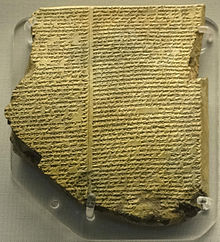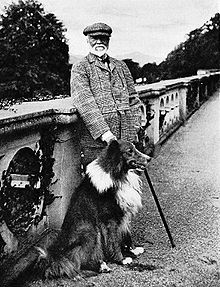Libraries have been improving the lives of people since back to 2600 BC. The earliest libraries had records (books) on clay tablets, with one library containing over 30,000 clay tablets. Then things got better with the use of papyrus. As far back as 700 BC there is evidence of a library classification system being used in Nineveh, an Assyrian city. The Library of Alexandria, in Egypt, was the largest and most significant library of ancient times, established around 300 BC. It was considered to be the major center of learning.
2600 BC. The earliest libraries had records (books) on clay tablets, with one library containing over 30,000 clay tablets. Then things got better with the use of papyrus. As far back as 700 BC there is evidence of a library classification system being used in Nineveh, an Assyrian city. The Library of Alexandria, in Egypt, was the largest and most significant library of ancient times, established around 300 BC. It was considered to be the major center of learning.
Most certainly libraries have played an important part in developing the culture in the U.S.. My parents lived through the great depression. There was no money for anything but absolute necessities. So they checked out books from the library and read them aloud to one another. What a great bonding experience – one that lasted well over fifty years.
 Andrew Carnegie, pictured at the left, was instrumental in establishing many, many libraries in small towns all across America.
Andrew Carnegie, pictured at the left, was instrumental in establishing many, many libraries in small towns all across America.
When Earlene was young, with no TV and no electronic games, the library was a lifesaver. Each Saturday, her mother would take her into the small town nearby. Earlene was allowed to walk to the library while her mother visited the grocery store. So, while the mother shopped, Earlene would collect as many books as she could carry. Then she would read furiously during the week to finish all those books so she could return those the next Saturday and then get more books. What a great influence. And that love of books and reading has continued throughout her life and is still strong today.
I was reminded recently of the vital role that libraries continue to play. A friend with Ramsay Hunt Syndrome said “I would have been lost the past three years without the library having audio books. I’ve always been an avid reader and this problem with my eye has made that so difficult.”
So libraries have adapted and now include not only paper books, but digital books, audio books, and in some cases, DVDs. In fact, I wrote a blog sometime back about a library in Bexar County, Texas that featured only digital books. Of course, they also had computers and gave many classes on a variety of topics. This library has proved to be very popular and has convinced other agencies to build such a public service. Digital. No paper books.
As authors, we should support libraries. They allow our work to be seen by a wider reader group. And even as our world is changing, and digital technology in many forms is becoming the method of choice for the younger generations (all those who do not remember a time when phones were attached to a wire, and to read meant to hold a paper book), libraries have a role to play, one that is good for readers, and for writers.

All my life libraries have been a vital part of how I learn about a world I’ll probably never visit. Every week my granddaughter & I check out both the Gilmer & Longview…yes, she’s a reader too.
Thanks for the comment, Gay. And for you and your grandmother, reading enriched both your lives. What a wonderful resource libraries are.
I wholeheartedly agree. I do many of my most important events at libraries because patrons and staff support authors. I always tell members of my audience that they should come to the library often and bring a friend with them.
Libraries open the reader and researcher to the entire world, past and present. In the 1940’s my parents lived in Illinois, in the country, farming. There was little to do during the winter so they spent the cold months reading. We went to town and the library about once a week during the winter. They each brought home an armload of books they read during the week. The next trip to town they returned those books and selected another set. The library card was $5.00 I think.
Today the same library requires anyone living in the country to bring in their tax return to establish the cost of their library card. The minimum is over a hundred dollars. It goes up from there. Those living within the city limits paid much less for their cards. The last ten years of my mother’s life she refused to pay the outrageous cost of a library card. I’m thankful Texas and many other states encourage reading and learning by adding the various means of communicating facts and ideas.
Thanks, Galand. I didn’t know that some libraries charged for a library card. I don’t think they charged anything for a library card when I was growing up. And I’m positive they didn’t charge my parents for one. They wouldn’t have had the money to pay for one. Our library in Winnsboro doesn’t charge for a library card today. And with funding so low, you can imagine they might. But, how wonderful that they do not.
Great advice, Lesley. Libraries are an often underused resource. We all need to show some support for our libraries. What a disaster it would be to lose them. Thanks for stopping by.